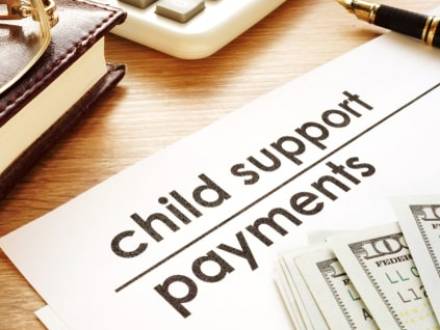630-462-9500
After Hour New Client Telephone Number 630-690-6077
1776 S. Naperville Road, Building B, Suite 202,
Wheaton, IL 60189
Recent Blog Posts
Can a Judge Force Me to Pay My Child's College Tuition if I Cannot Afford It?
 When parents divorce or separate, one of the most pressing issues they typically face is how to provide for their children's needs, including education. While child support normally ends when a child turns 18 or graduates from high school, Illinois courts may require a parent to contribute to college expenses. Depending on their financial situation, parents may wonder what will happen if they cannot afford to pay this significant fee. If you are dealing with this complex issue, an Illinois divorce lawyer can help protect your rights and work toward a fair resolution.
When parents divorce or separate, one of the most pressing issues they typically face is how to provide for their children's needs, including education. While child support normally ends when a child turns 18 or graduates from high school, Illinois courts may require a parent to contribute to college expenses. Depending on their financial situation, parents may wonder what will happen if they cannot afford to pay this significant fee. If you are dealing with this complex issue, an Illinois divorce lawyer can help protect your rights and work toward a fair resolution.
What Does Illinois Law Say About Paying for College Expenses?
Under state law, Section 513 of the Illinois Marriage and Dissolution of Marriage Act allows courts to order parents to contribute to the educational expenses of their non-minor children. This obligation is separate from standard child support and can include:
Planning for Life After Divorce Can Make the Transition Easier
 Divorce marks a significant turning point in life, signaling the end of one chapter and the beginning of another. While the process itself can be emotionally and legally complex, preparing for life after divorce can help make the transition smoother and less daunting. Planning ahead for financial adjustments, co-parenting arrangements, and emotional well-being is essential for building a stable and fulfilling future. An experienced Illinois family law attorney can guide you through the legal aspects of divorce and help you navigate the challenges that follow.
Divorce marks a significant turning point in life, signaling the end of one chapter and the beginning of another. While the process itself can be emotionally and legally complex, preparing for life after divorce can help make the transition smoother and less daunting. Planning ahead for financial adjustments, co-parenting arrangements, and emotional well-being is essential for building a stable and fulfilling future. An experienced Illinois family law attorney can guide you through the legal aspects of divorce and help you navigate the challenges that follow.
What Are the Financial Implications of Divorce?
One of the most noteworthy adjustments after divorce involves finances. It can be overwhelming to transition from a dual-income household to managing on a single income, dividing assets, and fulfilling any financial obligations from the divorce decree. By understanding the financial landscape ahead, you can help maintain stability.
Can a Parent Voluntarily Relinquish Parental Rights in Illinois?
 When a mother gives birth to a child, she automatically receives legal privileges and responsibilities, officially referred to as parental rights. If the mother is married, her husband is presumed to be the baby's father, and therefore he also gains parental rights. Unmarried fathers can establish paternity and obtain parental rights by signing a Voluntary Acknowledgement of Paternity (VAP). However, there are some circumstances in which a parent may wish to give up his or her parental rights. An Illinois family law attorney can help you understand the logistics of your parental rights and offer legal guidance.
When a mother gives birth to a child, she automatically receives legal privileges and responsibilities, officially referred to as parental rights. If the mother is married, her husband is presumed to be the baby's father, and therefore he also gains parental rights. Unmarried fathers can establish paternity and obtain parental rights by signing a Voluntary Acknowledgement of Paternity (VAP). However, there are some circumstances in which a parent may wish to give up his or her parental rights. An Illinois family law attorney can help you understand the logistics of your parental rights and offer legal guidance.
What Does It Mean to Voluntarily Give Up Your Parental Rights?
Parental rights include the right to parenting time, the right to object to the child being placed for adoption, and much more. However, being a child's legal parent may also require certain responsibilities such as a child support obligation. Children can only have two legal parents. If a stepparent wishes to adopt his or her stepchild, the other parent may need to terminate his or her parental rights. The court also has the authority to terminate a parent's rights against his or her will in situations involving abandonment, abuse, or other issues that endanger the child.
Should I Consider Collaborative Divorce?
 Collaborative divorce, like mediation, is a form of alternative dispute resolution that began in 1990 in Minneapolis. A family law attorney in the city was so burned out from high-conflict divorces that he was ready to walk away from his chosen profession. Instead, he invited opposing lawyers to work with him to resolve adversarial issues. The process worked well for clients, and the idea of collaborative divorce was born.
Collaborative divorce, like mediation, is a form of alternative dispute resolution that began in 1990 in Minneapolis. A family law attorney in the city was so burned out from high-conflict divorces that he was ready to walk away from his chosen profession. Instead, he invited opposing lawyers to work with him to resolve adversarial issues. The process worked well for clients, and the idea of collaborative divorce was born.
Every state in the United States now offers some form of collaborative divorce, along with 25 other countries worldwide. The Illinois Collaborative Process Act (ICPA) defines the collaborative divorce lawyer as a procedure intended to resolve a divorce without court intervention. If you are considering a collaborative divorce, speaking to an experienced Wheaton, IL family law attorney can be beneficial.
Can Grandparents Get Custody Without a Parent's Permission?
 Divorce does not just break up a mother, father, and children; it can also have a significant impact on extended family members as well. Grandparents who have been involved in the lives of their grandchildren on a regular basis may see them seldom following a divorce. Some grandparents even ask for visitation rights or, in rare cases, parental rights.
Divorce does not just break up a mother, father, and children; it can also have a significant impact on extended family members as well. Grandparents who have been involved in the lives of their grandchildren on a regular basis may see them seldom following a divorce. Some grandparents even ask for visitation rights or, in rare cases, parental rights.
Every situation is different, so the outcome is always tailored to each unique family. Judges in family court have one goal when it comes to anything to do with children: whether something is in the child's best interests. Will what is being asked by a parent or grandparent benefit the child in some way? Will the child suffer harm if the request is denied?
Illinois courts also believe that it is in a child's best interest to have regular interactions with both parents. Terminating a parent's rights in favor of a grandparent would rarely be considered because, under most circumstances, such a move would not be in the child's best interests. If you find yourself in a situation where a grandparent is seeking parental rights for your child, or you are the grandparent seeking those rights, speaking to an experienced Wheaton, IL family law attorney can be beneficial.
Can Moms Be Ordered to Pay Child Support in Illinois?
 A little more than five decades ago, a woman could not even obtain a credit card without her husband's signature. Significant strides have been made by women since then, and today, more women are earning university degrees and even graduate degrees than men. This means that more women today are the primary breadwinners for their families.
A little more than five decades ago, a woman could not even obtain a credit card without her husband's signature. Significant strides have been made by women since then, and today, more women are earning university degrees and even graduate degrees than men. This means that more women today are the primary breadwinners for their families.
Changes in the economic status of many women are reflected in the allocation of parental responsibilities and in the awards of child support. At one time, moms were more likely to be awarded primary parenting time with the children, and dads were more likely to pay child support, but neither of these is true today.
Fathers are often awarded more parental responsibilities and parenting time than mothers, and mothers are just as likely as fathers to be ordered to pay child support. If you have concerns about which parent will be ordered to pay child support, talk to a Wheaton, IL family law attorney who can answer your questions and guide you through the process.
What is a Bifurcated Divorce?
 In the realm of divorce proceedings, a term that sometimes arises is "bifurcated divorce." There are many potential implications of a bifurcated divorce that can benefit from a knowledgeable divorce attorney. Understanding this unique approach to divorce allows those facing complex marital situations to make more informed decisions about their legal options. Like other forms of divorce, a Wheaton, IL divorce lawyer is an essential resource for couples going through traditional divorce or a bifurcated divorce.
In the realm of divorce proceedings, a term that sometimes arises is "bifurcated divorce." There are many potential implications of a bifurcated divorce that can benefit from a knowledgeable divorce attorney. Understanding this unique approach to divorce allows those facing complex marital situations to make more informed decisions about their legal options. Like other forms of divorce, a Wheaton, IL divorce lawyer is an essential resource for couples going through traditional divorce or a bifurcated divorce.
What is the Meaning of a Bifurcated Divorce?
Bifurcation refers to dividing a divorce case into two separate parts or stages. In the context of a divorce, it essentially means that the legal dissolution of the marriage is granted before all remaining issues, such as property division, child custody, and spousal support, are completely resolved. This approach allows couples to efficiently obtain a legal divorce while continuing to negotiate or litigate the remaining matters.
Is Daycare Included in Child Support?
 More than two-thirds of the children in the United States who are not in school have parents who are in the workforce. This makes childcare critical, not only for working parents but also for the early learning and development of the children. Options for childcare can be limited, and costs are high. Many parents barely make enough at their jobs to pay for childcare. High-quality childcare is simply inaccessible for many families in the United States.
More than two-thirds of the children in the United States who are not in school have parents who are in the workforce. This makes childcare critical, not only for working parents but also for the early learning and development of the children. Options for childcare can be limited, and costs are high. Many parents barely make enough at their jobs to pay for childcare. High-quality childcare is simply inaccessible for many families in the United States.
In the state of Illinois, there were approximately 813,447 children under the age of six in 2023. A significant portion of those children (135,348) also lived in poverty. The percentage of those children whose parents both worked was 71.1 percent. 89,745 parents reported quitting a job, not taking a job, or significantly changing their jobs because of childcare problems.
How Do Narcissists React to Divorce?
 Divorce can be challenging, regardless of the relationship between spouses. When one spouse exhibits traits of narcissism, the situation becomes much more complex. Those with narcissistic personality disorder (NPD) are fueled by an inflated sense of self-importance, which can trigger unique or totally unexpected responses to divorce. Some have even labeled a divorce with a narcissist a "psychological battlefield."
Divorce can be challenging, regardless of the relationship between spouses. When one spouse exhibits traits of narcissism, the situation becomes much more complex. Those with narcissistic personality disorder (NPD) are fueled by an inflated sense of self-importance, which can trigger unique or totally unexpected responses to divorce. Some have even labeled a divorce with a narcissist a "psychological battlefield."
If you are married to a narcissist, you likely understand that divorce will not be easy, yet you also know that divorce is essential for your own well-being. While every divorce and every spouse are unique in some way, if you are divorcing a narcissist, you should expect a fight at every stage. Most narcissists want to control every aspect of the divorce, including the judge.
Since narcissists do not like to lose, there will likely be a flurry of motions and fights over the most trivial matters. If you are facing a divorce from a narcissistic spouse, you need a divorce attorney who has experience dealing with narcissists and can help you through the divorce in the best way possible. A Wheaton, IL divorce attorney from The Stogsdill Law Firm, P.C. will be a strong advocate for you from start to finish.
How Much Does an Attorney Affect the Outcome of a Divorce?
 While many people think how expensive your divorce attorney is can determine the outcome of the divorce, this is not necessarily the case. There are, however, dozens of nuances and skills a particular and skillful divorce attorney brings to the table that can have an impact on the outcome of your divorce.
While many people think how expensive your divorce attorney is can determine the outcome of the divorce, this is not necessarily the case. There are, however, dozens of nuances and skills a particular and skillful divorce attorney brings to the table that can have an impact on the outcome of your divorce.
If you are thinking of handling your divorce on your own, you should re-think that decision. If you need a broken bone set, you go to a qualified doctor rather than trying to do it yourself. If your car needs the alternator replaced, you take it to a mechanic who has the knowledge and skills necessary to complete the task.
A divorce attorney knows every state law pertaining to divorce and has probably encountered virtually every divorce situation. This is not to say that your divorce will not have some unique aspects, but it will also have many aspects with which your divorce attorney is familiar. When you have an experienced Wheaton, IL divorce attorney from The Stogsdill Law Firm, P.C. as your advocate, you are likely to experience the best possible outcome.




















